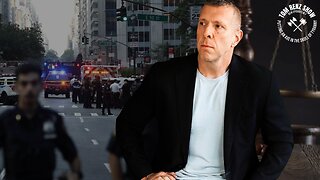Premium Only Content

The Khrushchev and Brezhnev years
The Khrushchev and Brezhnev years
In the power struggle that erupted after Stalin's death in 1953, his closest followers lost out. Nikita Khrushchev solidified his position in a speech before the Twentieth Congress of the Communist Party in 1956 detailing Stalin's atrocities and attacking him for promoting a personality cult. As details of his speech became public, Khrushchev accelerated a wide range of reforms. Downplaying Stalin's emphasis on heavy industry, he increased the supply of consumer goods and housing and stimulated agricultural production. The new policies improved the standard of living, although shortages of appliances, clothing, and other consumer durables would increase in later years. The judicial system, albeit still under a complete Communist party control, replaced police terror, and intellectuals had more freedom than before.
In 1964 Khrushchev was ousted by the Communist Party's Central Committee, which charged him with a host of errors that included Soviet setbacks such as the Cuban Missile Crisis and the deepening Sino-Soviet Split. After a brief period of collective leadership, a veteran bureaucrat, Leonid Brezhnev, took Khrushchev's place.
Despite Khrushchev's tinkering with economic planning, the economic system remained dependent on central plans drawn up with no reference to market mechanisms. As a developed industrial country, the Soviet Union by the 1970s found it increasingly difficult to maintain the high rates of growth in the industrial sector that it had enjoyed in earlier years. Increasingly large investment and labor inputs were required for growth, but these inputs were becoming more difficult to obtain, partly because of the new emphasis on production of consumer goods. Although the goals of the five-year plans of the 1970s had been scaled down from previous plans, the targets remained largely unmet. Agricultural development continued to lag in the Brezhnev years.
Although certain appliances and other goods became more accessible during the 1960s and 1970s, improvements in housing and food supply were not sufficient. The growing culture of consumerism and a shortage of consumer goods, inherent in a non-market pricing system, encouraged pilferage of government property and the growth of the black market. But, in contrast to the revolutionary spirit that accompanied the birth of the Soviet Union, the prevailing mood of the Soviet leadership at the time of Brezhnev's death in 1982 was one of aversion to change.
-
 LIVE
LIVE
Colion Noir
4 hours agoCaught On Camera: Armed Veteran With AR-15 Shoots Man Who Fires Into Crowd With Drum Magazine
331 watching -
 LIVE
LIVE
Barry Cunningham
1 hour agoSYDNEY SWEENEY PROVES PRESIDENT TRUMP IS RIGHT! EVERYTHING WOKE TURNS TO....
231 watching -
 LIVE
LIVE
Sean Unpaved
1 hour agoRyne Sandberg's Legacy, Madden's 99 Club, NIL's Locker Room Heat, & Wilkins' Kiss-and-Run
190 watching -
 6:29
6:29
Clickbait Wasteland
15 hours agoCUOMO vs ZOHRAN: Who do New Yorkers Want as the Next Mayor?
113 -
 22:10
22:10
IsaacButterfield
9 hours ago $0.18 earnedUnhinged White Woman Hates White People
89610 -
 1:04:05
1:04:05
Timcast
2 hours agoThe TAMURA Conspiracy, Theory Says Blackstone WAS The Target Over Israel, NOT NFL
125K54 -
 2:15:27
2:15:27
Steven Crowder
4 hours ago🔴 NYC Shooting Exposes Massive Hypocrisy From Mamdani & the Left
285K274 -
 1:36:20
1:36:20
The Mel K Show
2 hours agoMORNINGS WITH MEL K - An Engaged Fed Up Citizenry is Finally Moving the Needle Towards Accountability 7-29-25
24.6K15 -
 LIVE
LIVE
Rebel News
1 hour agoByelection ballot drama, Ford flips on jobs for asylum seekers, Pipeline problems | Rebel Roundup
358 watching -
 LIVE
LIVE
The Tom Renz Show
1 hour agoThe Manhattan Shooting, Vax Accountability, & Trump's Trade Deals In Crypto World
130 watching